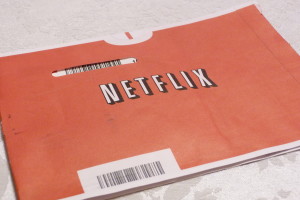
By Ryan Downs
Network neutrality formally demolished, it’s likely it won’t hurt consumers.
Yet choices between cable companies are limited, so if one has a problem with the policies of the industry, they have little to choose from if they wish to use cable. Seven CSUSM professors from a variety of fields were contacted for a comment on Internet neutrality implications.
Rika Yoshii, Ph.D and computer science and information systems professor said of recent events in network neutrality “Interesting. I have not talked about it in my class but I will.”
One of the founding principles behind the Internet since its creation has been the concept of net neutrality, or the notion that all data on the Internet should be treated with equality. That means no website is acquiring any kind of preferential treatment or discrimination in the eyes of the government or businesses. It’s a provision that has, arguably, helped make the Internet what it is today. In the eyes of many experts, it has just been demolished.
In January, after a longstanding legal battle over the issue, the Federal Communications Commission (FCC) took the issue to a circuit court in Washington D.C. While attempting to legalize the concept of Internet equality, they were rejected when the court ruled that, under U.S. law, corporations had no legal obligation to give neutral treatment with regards to data.
The ramifications of this are simple; cable companies such as AT&T, Verizon, Comcast and Time Warner are legally allowed to charge web based companies like Google or Netflix for use of their bandwidth. A lack of payment and the cable companies can strangle the bandwidth, which can force websites to take longer to load and cause a decrease in quality.
However, it’s important to remember that this had been the case before the ruling; it had just never been set in stone. Telecom lawyer Marvin Ammori stated how, even before the ruling, cable companies still technically had the power to do with their bandwidth as they pleased. “Whim. Envy. Ignorance. Competition. Vengeance. Whatever,” he lists as reasons a cable company would hurt a website’s download. “Or no reason at all.” However, many, such as Verizon, waited for a court ruling on the subject before going so far as to enforce payment.
Naturally, the ruling has not sat well with many in the industry, but its doubtful customers will be hurt. Timothy Lee from Forbes states that the problem with legislation about neutrality is that neutrality is not explicitly defined.
“However desirable a neutral internet might be the rule of law is more important,” Lee said.
It is possible that rates to use services like Netflix may increase, but its unlikely mega corporations like it and Amazon will be unable to pay the fees. The real problem comes from the somewhat limited share of power inherent to the new system. As it stands, there are less than six major companies that control cable, a number that could grow smaller with a potential acquisition of Time Warner by Comcast. This means that those unhappy with one company’s handling of the system have precious few other places to turn to.
For the most part, it seems as if little will change for the customers, especially as more and more people turn to wireless data and cloud computing. But the race for power in the network industry, nothing will be the same.

